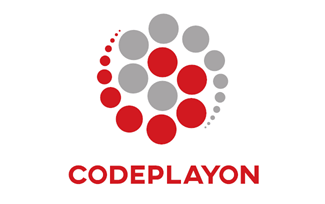Why do you need to adopt automation in Salesforce testing?
With more than 150K users worldwide, Salesforce is the most widely used CRM system. With three major releases and the occasional patch each year, Salesforce’s dedication to ongoing innovation is one of the main factors in its success. Changes can happen anywhere in your Salesforce environment. It can be a new release, a patch, or a simple data or code change, depending on the business needs. These changes sometimes go into production without adequate testing due to time-to-market and resource constraints, causing massive financial and reputational losses for the companies.
Automation in Salesforce testing is recommended because, if you are testing your application to ensure that newly configured features are working properly and that established features have not regressed, if performed manually, it may cause significant issues during production even after investing months and thousands of man-hours in testing.
Applying automation in Salesforce environment is particularly critical for the following reasons:
Changes due to business requirements
Due to changing business requirements, Salesforce users keep adding new features and integrations, which are difficult to test manually. The more changes, the higher the risk of breakage, which makes automated testing crucial for business continuity.
Continuous Updates
Salesforce is updated three times a year, with over a thousand changes made each time. No amount of manual testing can completely eliminate the risks associated with basic business processes given the frequency of updates, the regularity of changes, and the core functionality that is affected. Extreme test automation in Salesforce is the only way to get the business risk coverage you need at the speed required.
End-to-End Integrations
Salesforce applications are interconnected and distributed among multiple end-to-end business processes, like APIs, web UIs, mobile, web services, ESBs, mainframes, and other packaged applications. End-to-end Salesforce integration testing is required to ensure these business processes continue working after any update. The challenges of running end-to-end tests can slow down your release process and increase the risk of undetected defects disrupting business. You need automation in Salesforce testing to solve end-to-end testing challenges.
Salesforce Classic to lighting migration
When users perform a classic to lighting migration there are many moving parts, piled up with Salesforce updates that affect a wide range of features. Manual testing cannot evolve with these classic to lighting migration testing challenges, only automated testing has the potential to test in such a complex scenario.
Inadequate Test Coverage
One of the biggest challenges in Salesforce testing is insufficient to test coverage. Many functional / non-functional attributes get added, updated, or removed with each update. There is a limited number of test scripts that can be run manually, which limits the overall test coverage. To cover the test adequately, automation in Salesforce testing is needed.
Resource Intensive
Depending on a resource to build and maintain your Salesforce automation framework can leave you vulnerable to high risks. If you upskill the resource in automation, it might be costly and time-consuming. If you ask the Salesforce platform tester or developer to assist in writing and maintaining the Salesforce scripts, it will also take time away from their original task, and as a result, quality will be compromised.
Is your testing framework allowing your business to leverage the full potential of automation?
Code-based test automation frameworks require the tester to code or the developer to spend their time testing. Either way, precious resources, time, and effort are wasted. Due to these reasons, code-based automation frameworks become unreliable as they require a lot of maintenance and skilled resources.
To keep pace with changing market requirements, organizations adapt to changing conditions. The codeless Salesforce test automation framework is in high demand.



